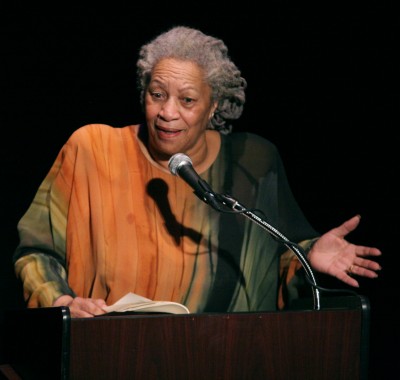I recently had a chance to ask Toni Morrison the following question: which American author alive today is most deserving of the Nobel Prize in Literature? Morrison — who remains the most recent American laureate for the literature prize, which she won in 1993 — said she wished an American would win it again soon so silly people like me would stop asking her such questions.
Then, savvily skirting my question, Morrison said that American playwrights are too often overlooked. She didn’t name any living authors deserving of the prize, which was obviously the safest move to make. (Since 1974, Nobel regulations state that the prizes cannot be awarded posthumously, unless a would-be recipient dies between the announcement [typically in October] and the actual award ceremony [typically in December].) But Morrison did go on to point out that two of America’s greatest playwrights, Arthur Miller and Tennessee Williams, never won the Nobel Prize in Literature — but they almost certainly should have.
I agree.
Miller won a Pulitzer Prize in Drama for Death of a Salesman (1949), while Williams won two Pulitzers, one for A Streetcar Named Desire (1948) and one for Cat on a Hot Tin Roof (1955).
Winning the Nobel Prize in Literature is important, among other reasons, because it brings one’s work to new audiences. Teachers of literature around the world fill their syllabi with the work of Nobel laureates. As the world’s most prestigious lifetime achievement award, the Nobel Prize in Literature bestows a certain legitimacy on one’s work and ensures that audiences around the globe will read it. Every October when the latest winner is announced, publishing houses quickly turn out new editions of the winner’s works. High schoolers soon find themselves studying them.
I vividly recall my first encounter with Toni Morrison’s work. My required summer reading between sophomore and junior year of high school, in 1993, consisted of John Grisham’s A Pelican Brief and Toni Morrison’s The Bluest Eye. My teacher’s thinking was that we’d compare and contrast “escape” fiction (Grisham) with “real” or “serious” fiction (Morrison). Unsurprisingly, we all emerged from that assignment scorning “escape” fiction and shunning everything by John Grisham, Michael Crichton and Stephen King. Anything that was easy to read and nothing more than plot was out. Symbolism and foreshadowing were in, as was language so complex that rereading was not just advisable but essential. I’ve been a literary snob ever since.
Morrison’s The Bluest Eye broke my heart, but I loved it. I went on to read all nine of her novels. My favorite to teach is Song of Solomon (1977), which at 337 pages is quite a challenge for many students to get through. But they always do, and they (almost) always love it.
So who do you think will be the next American to win the Nobel Prize in Literature? Who most deserves it, and why? (I’ve got my money on Philip Roth and Joyce Carol Oates.) Will the American drought end in 2010?




